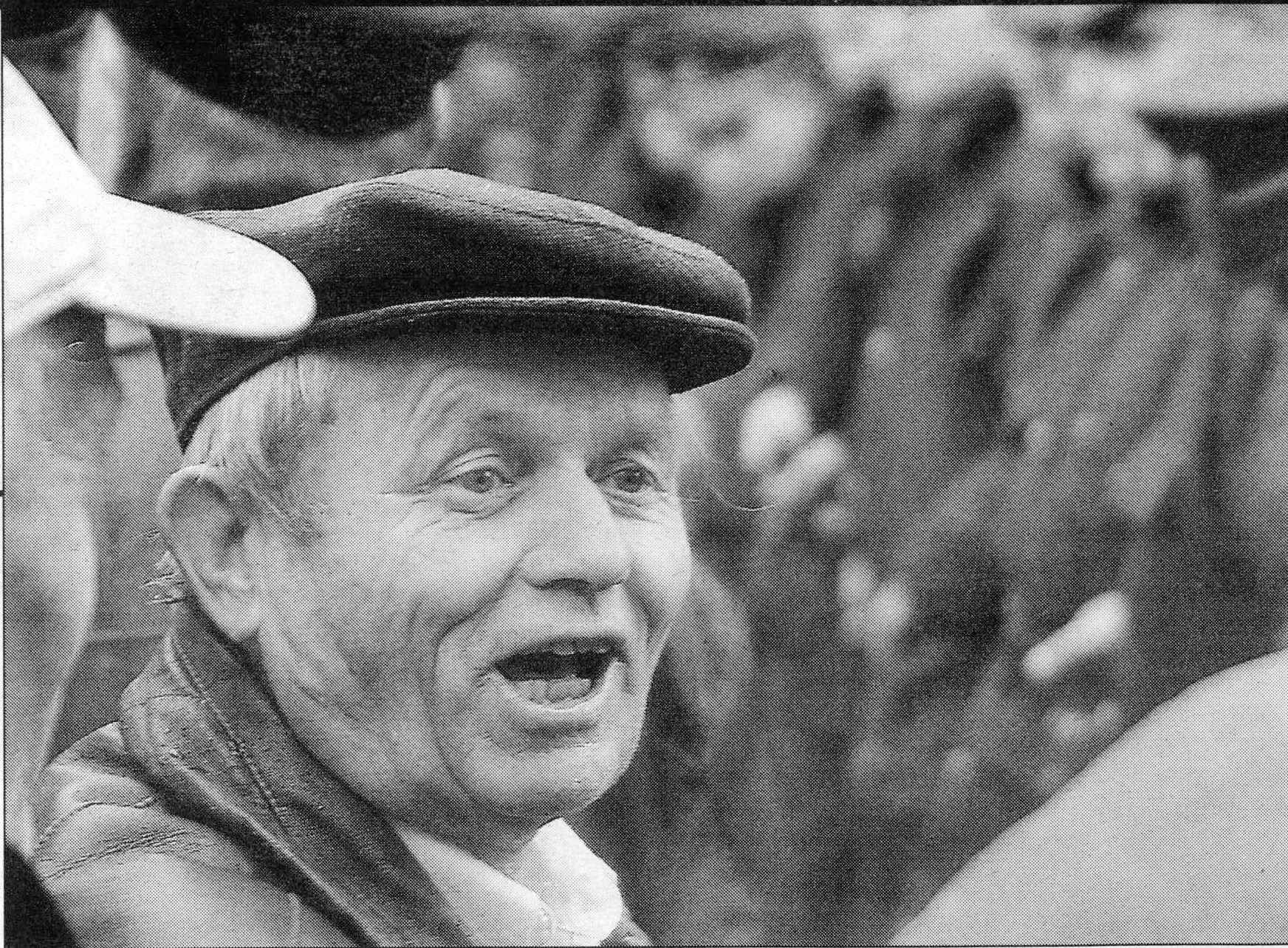 |
Pensioners threaten ‘Republika Srpska’
by Ivan Lovrenovic

If crisis is the permanent way of life of all of Dayton Bosnia-Herzegovina, this is even more true of its ‘Serb part’, Republika Srpska. From its earliest days this strange territorial-political construct has experienced one cycle of crisis after another, each phase prompting the anguished question of its very survival. Taken as a whole, the crisis there has two aspects: an internal one reflecting the catastrophic social and material position of its population, and an external one reflecting various forms of international pressure aimed at its gradual ‘de-nazification’ (dismissals of Karadžić’s appointees from government, demands for the arrest of war criminals, orders to investigate and admit to the crime in Srebrenica, etc).
Yet at the other pole of this state of permanent instability and crisis lies the fact that RS appears to have an inexhaustible number of ‘cat’s lives’ in that it manages to extricate itself from each crisis, however difficult this may be or appear, seemingly undiminished in strength and endurance It is public knowledge that this is due to international policy, which for reasons of its own maintains Bosnia-Herzegovina - hence also RS within it - in its present dysfunctional and provisional existence. To be fair, however, one should not neglect the other factor that enables - for how long? - this absurd and unviable contraption to survive all challenges. I am referring to the tenacious ethnic collectivism, with its unfathomable reserves of mental energy, that in RS still keeps a firm and heavy grip on any possibility for the visible expression of civic-individual political or cultural orientations.
The war crimes issue
Over the past few days RS has found itself enveloped by yet another of its typical crises, leading its political authorities yet again loudly to proclaim: ‘If this or that is not done, the existence of RS will be called into question ...’ Once the B-H constitutional court had adopted the RS government’s report on the 1995 massacres in Srebrenica, the next event in the international calendar was marked by Paddy Ashdown’s speech to the UN Security Council, in which he sharply warned that RS was blocking Bosnia-Herzegovina’s path to EU and NATO by ignoring its obligations towards the Hague tribunal: i.e. by failing to arrest Karadžić, Mladić and others indicted for war crimes. Then came the report by the Hague tribunal’s president Theodor Meron to the UN General Assembly, in which he accused RS for its singular failure to cooperate with the Tribunal, adding that the latter’s historic mission will not be completed until all the major indictees have been brought to justice. Finally, there is the impending report by Carla del Ponte to the United Nations, which unless something dramatic happens will lead to serious measures being adopted by the international community against Bosnia-Herzegovina and RS.
Banja Luka takes a serious view of all this. At the same time as Theodor Meron was speaking on the East River, RS president Dragan Čavić was visiting Belgrade, where he demanded help in this regard from Serbia’s premier Vojislav Koštunica and president Boris Tadić. ‘I made it very clear that we expect the Serbian leaders to cooperate in this task, since it is clear that a number of individuals indicted by The Hague, who are citizens of RS, find themselves in Serbia’, Čavić stated on his return. He also announced that the RS police will do its duty, and that one could expect fresh arrests within days. Indeed two days later RS’s special police arrested, all by itself, eight individuals indicted for the kind of crimes that The Hague has decided may be investigated by local courts. What is interesting is the fact that all of them had been indicted by the public prosecutor of the Sarajevo canton, and that the arrested were promptly handed over to his office. The police action involved Pale, Lukavica near Sarajevo, and Foča. Those arrested include Jovan Š kobo, Cvetko Novaković, Momir Glišić, Goran Vasić, Željko Mitrović-Gilmar, Veselin Čančar, Dragoje Radovanović-Srce and Momir Skakavac. Š kobo was a high police officer in Pale during the war, while Vasić and Čančar have already been tried for war crimes. The RS interior minister Darko Matijašević has announced new arrests, stressing that the police will ‘do all that is required in pursuance of full cooperation with The Hague, without any reservations.’
Angry rebellion
But in order to give a full picture of RS everyday life these days, one must mention also the huge wave of demonstrations by old-age pensioners affecting Banja Luka, Prijedor, Bosanska Gradiška and other cities. These were not the sad and impotent gatherings of old people normally witnessed throughout Bosnia-Herzegovina, but a massive, angry and bitter rebellion. They presented an astonishing sight: elderly men and women, whose faces and dress and also shouts displayed all their humiliation and neglect, confronted strong and heavily equipped ‘specials’ yet did not retreat! The result: the police used force and there were many injured.

It should not be thought that the arrest of the eight - or those that are supposed to follow - is the sign of a radical turn in RS. That would not happen even if they arrested Karadžić - though this is not likely to happen, since it is a matter of agreement transcending the level of Banja Luka. Nor will the pensioners’ protests and the still more massive ones to come make any difference. Yet one cannot escape the impression that the two events taken together do tell a new and previously unthinkable story: Serb police arresting Serb heroes and beating up Serb old-age pensioners.
Translated from Feral Tribune (Split), 19 November 2004
|